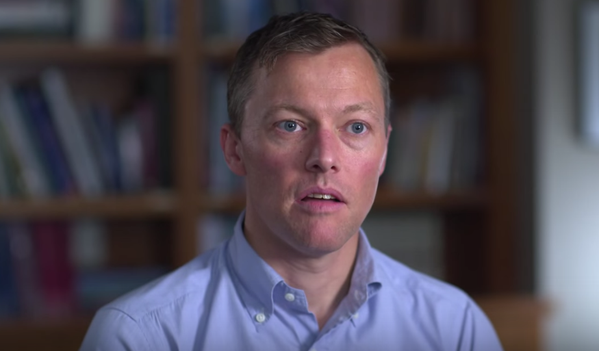Drawing on his book, Matthew Desmond recounted the story of one of the eight families he followed through his ethnography on eviction in Milwaukee for this year’s annual Go Big Read event at the Memorial Union Theater Tuesday.
The book, Evicted: Poverty and Profit in the American City, can trace its roots back to Wisconsin in many ways.
An ethnography, Evicted explores the consequences of eviction in Wisconsin’s largest city. Desmond is even a product of the University of Wisconsin’s own Department of Sociology as well as the Institute for Research on Poverty.
And, according to UW Chancellor Rebecca Blank, Desmond’s work exemplifies the Wisconsin Idea.
Blank opened the evening with a nod to recent events, the overall campus climate and dialogue around diversity and inclusion.
“It’s perhaps no surprise [this year’s book has] drawn such a large participation,” she said.
Blank reported that 6,000 students were provided with copies of the book and 225 courses on campus implemented the book into their syllabi. Even the law school has picked up the book.
To write his ethnography, Desmond followed eight families through eviction in Milwaukee, becoming intimate with their lives, from AA meetings, to births to funerals. Desmond said putting in that time to understand them and their experiences helped inform him about what questions he should be asking as well as how to be asking them.
In turn, this allowed him to conduct the most effective research.
At the end of the day, having a home — someplace safe, reliable and warm to return to — Desmond asserted, is integral to a person’s foundation. Through his retelling of one family’s trials after eviction, Desmond illustrated how eviction and homelessness can hamper the ability of a child to achieve their full potential.
Not only can it hamper their potential, but, through his work, Desmond found that it’s often single mothers with young children who are the people most likely to be impacted by eviction or have their rental applications be rejected outright.
After an initial eviction, Desmond said, families end up in increasingly worse neighborhoods.
“Eviction pushes people deeper into disadvantage,” Desmond said.
Desmond urged the students sitting in the theater, no matter their field of study, to see addressing poverty as their civic duty.
Pointing to the eradication of slums of the 1940s in America’s inner cities as an example, Desmond said this country has the ability to address large scale housing problems when it wishes to, it only need make it a priority.
“Stop repeating the lie that this rich state, this rich country can’t afford to address [poverty,]” he said.








